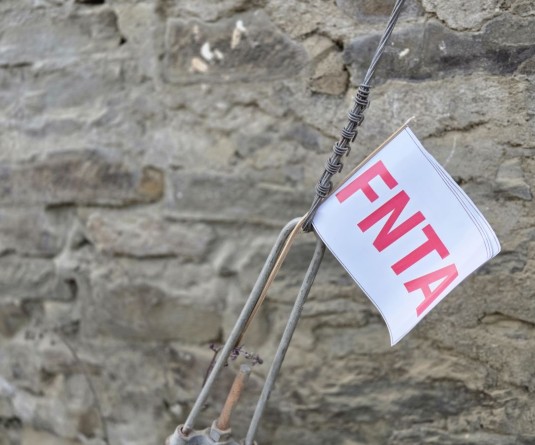
M Imyu Longchar
Para-Medical Colony, Kohima
The journey of the Statehood of Nagaland is passing through a half of the century since the attainment of her Statehood. In the course of this journey, different political parties ruled the Government under different leadership.
During this journey, one of the greatest significant events is the recent mass public movement which can be better known as people’s movement by all the Tribal Hohos spearheaded by Joint Co-ordination Committee (JCC) and Nagaland Tribe Action Committee (NTAC) demanding the Chief Minister to step down, with some other demands.
Similarly, way back to 1986, there was an agitation called by NSF against some objectionable policies of the State Government at that point of time. However, the agitation was confined only to Kohima where two students lost their lives due to police firing eventually leading the Chief Minister to demit from his chair.
But the recent public movement, where two youth laid down their life and another succumbed to injury in such a prime age, and several others injured in police firing while protecting the rights of Nagas, was much greater affecting the entire State and it may go down to the history of Nagaland. Another consequences of the event was that the mob burned down several Government buildings/offices and properties.
The agitation was in protest against the 33% women reservation in the ULB election under Article 243T apprehensive to infringe the Article 371A. The immediate causes were due to the violation of the gentleman agreement by the Government on 31st January 2017. The issue of demand is not yet solved.
Though, a number of writers gave their views supporting the women reservation, majority of people has opposed it basing on the Article 371A of the Constitution.
The reason is that Nagas are different from the Indian mainland in terms of culture, custom, social practice, tradition etc and with the same way different with those of Schedule Tribe, Schedule caste and other backward classes in the mainland. The woman status has been never neglected in the Naga Society. Some opined that woman status should bring into changes from the bondage of old custom and tradition. Yes, in our modern days women are equally enjoying the right with the men in many areas like in politics, public employment, education and many other fields.
The idea of women reservation is mainly to facilitate them to become a good quality leader in the decision making body. If we observe carefully, we can find out some defective on technical reason. Article 243T Para 1in the last sentence says, “Seat may be allotted by rotation basis to different ward”. In this case, the women member has no chance to continue in the same ward/colony unless another ward offers her the sit for the next term. So it is well understood that there is less chances for women candidates to become a good capable and experienced leader.
Secondly, it is totally going against the Naga customary practices and usage, to share with women in decision making body. The meaning of reservation is, “making a share of some portion or quantity or number’’. It distorts the principle of equality. But if the woman is elected after contesting the election, then, there will be no objection either opposing or arising the question of violating Article 371A. It is better to adhere to the Principle of equality where women and men can contest in the election of M.P, MLA and ULB with equal rights. This may be the best policy and should not mix up, twist or confuse the true meaning of the two words of equality and reservation. It is appealed to the Government to amend or pass a resolution especially for the Nagaland without delay.
Now, full implementation of Municipal Act bothers some more burdensome. The Municipal Act part IV chapter I section 120 provides to impose Taxes: Subject to the provision of this Act and the rules made there under, with previous sanction of the Government a municipality may in order to raise revenues for its duties and performing its function under this Act, levy within its limit of municipality the following taxes, fees and tolls or any of them: A tax on lands and buildings; an octoroi; Tool and fees; A scavenging tax; A tax on advertisement other than advertisement publish in newspapers; A show tax; A fire tax; A tax on the vehicle and animal.
As per the provision, there may be more taxes than the existing one. The best example among them is that of the tax on building. Then, who will pay the Tax? The owner may pay the Tax, which will enhance the rates of renting and in return the tenants will pay the rent at higher rate. In the same way the market price may go up, where the customers pay and definitely the life in urban areas becomes costlier.
While talking about the Tax, I always remember some events my father had narrated. As per his accounts, the youth movement started at Mokokchung Village in 1953. In 1954, the youth movement organised a rally at Mokokchung town and called the youth volunteers from every Ao village. Hundreds of youth gathered and went on procession openly with a slogan “No Taxation”. The protest was not to pay the household tax to Government. When the crowds reached the SDO Civil office, the crowds confronted with the police forces, and they attacked the crowd with lathi charge most of them ran away. It was only 32 of them who bravely stayed back to face the police action. Police beat them black and blue and took them to Jorhat, Assam and imprisoned them for 7 months at the district jail, Jorhat. One of them died at the Police custody. This record/list of the prisoners can be available at page-73, in the book title, “Unforgettable memories from Nagaland” by Rev. Dr. Mar Atsongchanger. Now it is learned that only four of them are alive, because of God’s grace my father who is also one of the victims is alive till date, but he still suffered from the injuries caused during that time.
Anyway, we are compelled to pay the household tax but exempted from the income Tax. It is due to the wisdom of our former dedicated leaders for our future.
However, it is time to change from the past. We have every right to pay the taxes but let us look at the present economic status of Nagaland. What are we producing and exporting? We are still facing problem for self reliance. Imagine, our economy is 9o percent depending on the imported goods like foods and other items from other states of India mainland. We have no success to run big factories and industries for large scale production, where the Government also can earn a huge amount of revenue and provide more employment opportunities for both skilled and the un-skilled labourers and facilitate other related job opportunities for the public earning avenue. For example, Sugarmill at Dimapur along with large areas of farming land areas belonging to the Government vanished, Paper Mill at Tuli also could not be revived. The recent Cement factory at Wazehu is defunct. I hope that only a few people have seen at the time of running those industries and factories. But now it is gone, what a great surprise! Today our economy solely depends on the Government job. Then, how can we uplift our state economic status?
We need the all round development to uplift the economic status of our state, whereas the central Government neglected our economy in many ways. On the other hand, we are well understood that numbers of unavoidable Taxes within us, but our leaders should be well aware, if not, even the income tax may intrude into our pocket without delay and tax away its share.
Numbers of the intellectuals and the legal professional have written and explained about the Article 371A of the Indian Constitution. It is hope that many could understand it. The main contents are:
“Not withstanding anything in the constitution:
No act of Parliament in respect of:
i) religious or social practises of the Nagas
ii) Naga customary Law and Procedure.
iii) Administrative of civil and criminal justice involving decision according to Naga Customary Law.
iv) Ownership and transfer of land and its resources, shall apply to the State of Nagaland unless the members of the Legislative Assembly of Nagaland by a resolution so decide.
Now, it is clearly understood that the Article 371A of the Constitution of India empowered the Legislative Assembly of the State of Nagaland to examine or ratify any Act passed by the Parliament pertaining to clause A (i-iv) which can not directly implemented but shall be decided by a resolution or by amendment of its applicability in the State of Nagaland. That, this content is simple but the implication is too wide.
It is the outcome of the 16th Point Agreement Sl.No.7.





